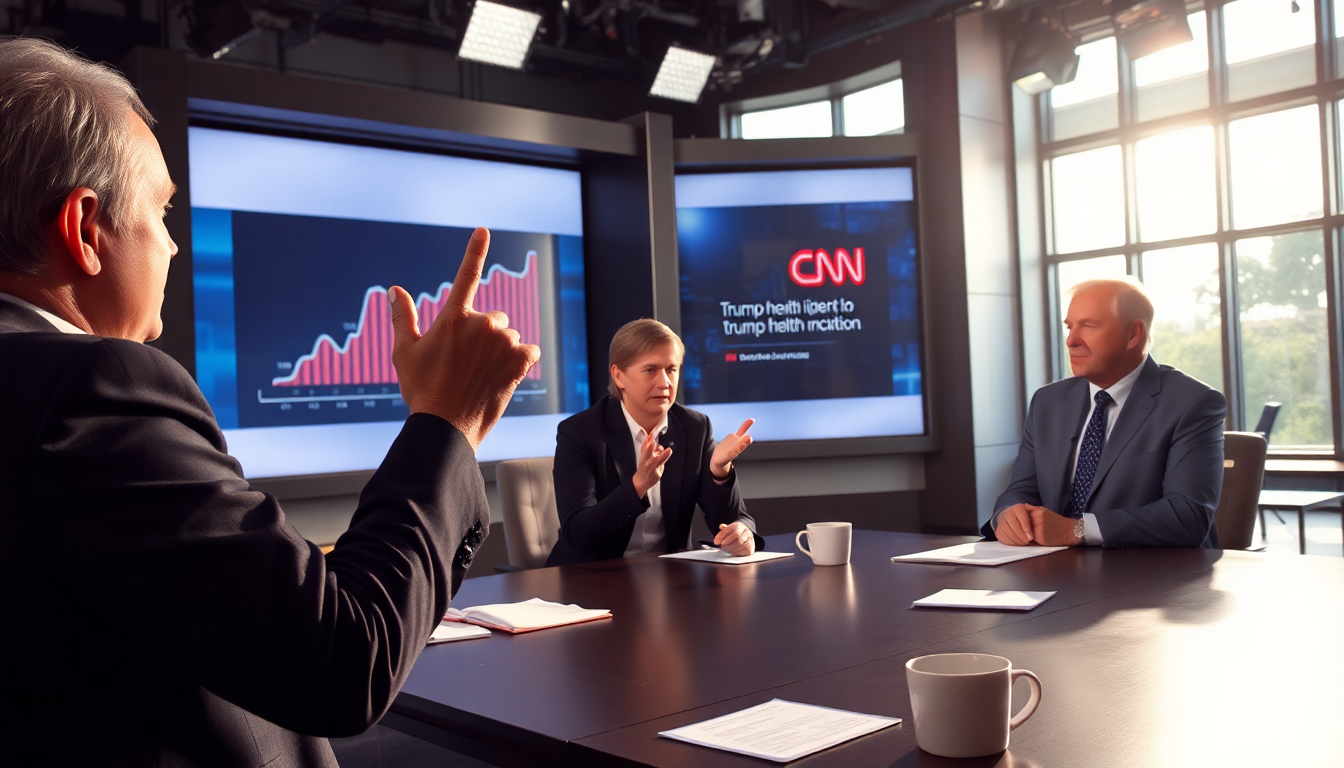Table of Contents
It was just another Thursday night when a CNN panel discussion took a surprising turn, igniting a heated debate over President Donald Trump’s health. The sparks flew as one guest’s comments revisited a contentious incident from a year earlier, where Trump was allegedly injured during a campaign rally in Pennsylvania.
This revelation, combined with ongoing concerns about medical transparency, created a lively exchange that showcased the complexities of discussing the health of political figures.
Setting the Stage
The panel featured prominent voices, including leftist podcast host Touré and senior political commentator Scott Jennings, among others.
They were diving into the White House’s transparency—or lack thereof—regarding Trump’s health status. When Touré claimed that Trump hadn’t been shot in the ear, despite the evidence suggesting otherwise, the atmosphere became electric. Jennings, clearly frustrated, pressed the host, Abby Phillip, for a correction, eager to set the record straight.
As the tension escalated, Jennings challenged the narrative, asking pointedly, “Did you say ‘supposedly?’” His insistence on the truth of Trump’s injury highlighted a critical aspect of political journalism: the need for accuracy. This discussion not only underscored the media’s role in shaping public perception but also the sensitivity required when addressing the health and safety of political leaders.
The Aftermath of the Debate
Touré’s relentless questioning about the absence of medical updates from Trump’s doctors only intensified the situation. Phillip stepped in, trying to steer the conversation back to the facts, asserting that Trump had indeed been shot and emphasizing the importance of clarity in such discussions.
Yet, Touré remained skeptical, advocating for more straightforward communication from medical professionals regarding the president’s condition.
This debate also opened the door to larger conversations about transparency and accountability in the White House, especially given the recent health concerns surrounding the president.
Panelist Adrienne Elrod noted that while the White House had released statements regarding Trump’s health, inconsistencies and gaps in the information raised serious questions about the administration’s commitment to transparency, particularly when it comes to the well-being of a sitting president.
Broader Implications for Political Discussion
The intense exchange on CNN reflects a troubling trend in political conversations, where speculation often blurs the lines of fact, leading to confusion among the public. As viewers seek updates on influential figures, the media’s responsibility to provide accurate and straightforward information has never been more vital. This incident serves as a stark reminder of how misinformation can undermine public trust and the critical need for diligent fact-checking in journalism.
Moreover, the discussion highlighted the pressing need for political figures to maintain open dialogue with the media, ensuring that the public stays informed about key aspects of their leadership, including health and safety. As the political landscape evolves, the dialogue surrounding transparency will undoubtedly continue to be a significant factor, shaping media practices and public expectations in the future.





